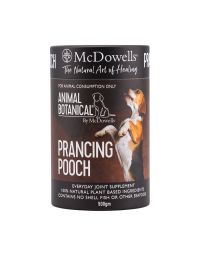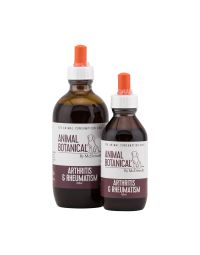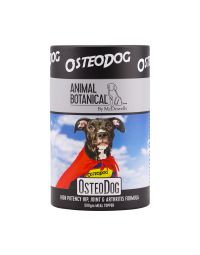Osteoporosis and osteoarthritis can affect all dog breeds. However, some are more prone to bone problems than others. Regular exercise, weight management, and providing good nutrition can help reduce the risk and manage arthritis in dogs.
Observing your dog and early intervention is essential for diagnosing and addressing arthritis in those breeds that are more susceptible.
Larger breeds
Large and giant breeds are generally more susceptible to developing arthritis due to their weight putting additional stress on their joints. Great Danes, Labrador Retrievers, Golden Retrievers, German Shepherds, Rottweilers, Saint Bernards, and Newfoundlands have a higher risk of developing arthritis due to their larger size and heavier weight .
Working and sporting breeds
These breeds are known athletes - active and usually and involved in physical activities or repetitive movements may have an increased risk of arthritis. This would include breeds like Border Collies, Australian Shepherds, Boxers, Doberman Pinschers, and Bulldogs. Cocker Spaniels are prone to a condition called immune-mediated polyarthritis, which causes inflammation in multiple joints.
Short-legged, long-backed breeds
Dachshunds, particularly the long-haired types, are prone to a spinal condition called intervertebral disc disease, which can lead to spinal arthritis. Corgis and Basset Hounds are two other breeds with body structures that can contribute to a higher risk of developing arthritis, particularly in the hips, elbows, and spine.
Old English Sheep Dogs
This breed is predisposed to developing hip dysplasia, a condition that can lead to arthritis in the hip joints.
Small breeds
Although less common, small dog breeds can also develop arthritis. Breeds like Chihuahuas, Pomeranians, Yorkshire Terriers, and Shih Tzus may be at a slightly higher risk due to genetic factors and may be more prone to injuries, such as fractures or dislocations, due to their size and sometimes more delicate bone structure. These injuries can increase the risk of developing arthritis in the affected joints.
How can you manage pain?
There’s options for non-medical pain management techniques, such as;
- Applying warm compresses or using therapeutic massage techniques.
- Provide soft bedding or orthopedic dog beds to support their joints and alleviate pressure points.
- Ensure their living space is warm, draft-free, and as comfortable as possible.
- Ramps or steps can help them access elevated surfaces more easily, and harnesses or slings can provide support during walks or when navigating stairs.
- Make the space they move around in accessible and where possible reduce the need to navigate stairs or obstacles.
- Try physical therapy techniques, such as range-of-motion exercises or hydrotherapy. These therapies help improve joint flexibility, strengthen muscles, and reduce pain.
- Regular, low-impact exercise helps keep the joints mobile and muscles strong. Engage your dog in controlled activities such as short walks, swimming, or gentle play sessions.
- Encourage your dog to drink an adequate amount of water throughout the day to support overall health and joint function.
How can nutrition and supplements help?
Supplements can play a supportive role in managing arthritis in dogs. A good quality supplement can help reduce inflammation, support joint health, and alleviate symptoms. Recommended supplements include;
Glucosamine
Shown to help support joint health and reduce inflammation. Glucosamine promotes the production of cartilage, while chondroitin helps to maintain its structure. They are often available as a combination supplement.
Omega-3 fatty acids
Omega-3 fatty acids have anti-inflammatory properties that can help reduce joint inflammation and improve mobility. Fish oil supplements, which are rich in omega-3s, are commonly used. Make sure to choose a high-quality fish oil supplement formulated specifically for dogs.
Green-Lipped Mussel Extract
Green-lipped mussel extract is derived from a type of mussel found in New Zealand. It contains omega-3 fatty acids, glucosamine, and other compounds believed to have anti-inflammatory effects and support joint health.
MSM (Methylsulfonylmethane)
MSM is a sulfur compound that is thought to have anti-inflammatory properties. It may help reduce joint pain and inflammation in dogs with arthritis.
Turmeric
Turmeric contains a compound called curcumin, which has natural anti-inflammatory properties. Curcumin supplements can be used to help reduce joint inflammation and provide pain relief.



